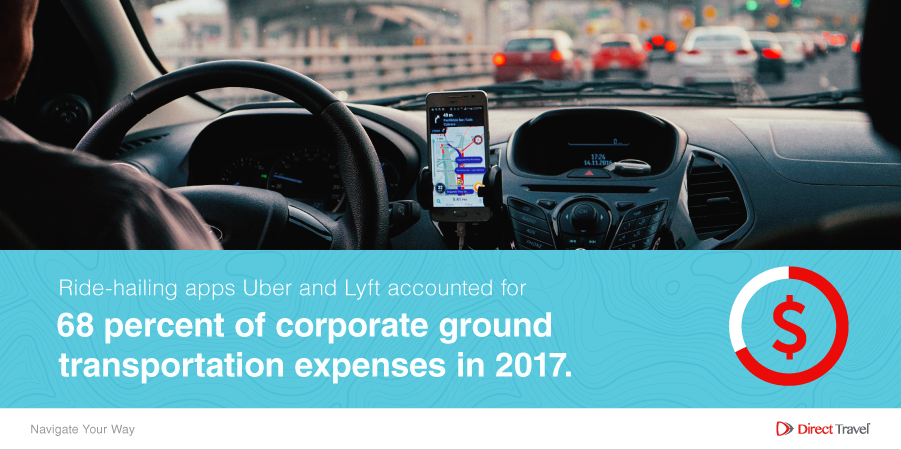Vehicle rental suppliers have evolved much over the past decade. Electric cars have become a serious option for anybody in the market for a car, people are using ride-hailing and ride-sharing apps for short trips, and companies are becoming increasingly aware of their environmental impact as it relates to travel.
To address these new trends, ground transportation suppliers have adopted new strategies that could affect your organization’s travel program.
New options for pay-per-use car sharing
Organizations that regularly require employees to travel to multiple sites often rely on their employees’ personal vehicles. A growing alternative to this scenario is pay-per-usage car sharing.
Major pay-per-use car-sharing suppliers include Enterprise CarShare, Hertz 24/7, and Zipcar. Travelers can simply reserve a car from their mobile device, use the car as needed and return it. This way, the business only pays for the hours the car is actually in use, gas included. And many of the options on the market today bundle insurance into a low monthly subscription cost.
For these reasons and more, pay-per-use car sharing has real potential to help companies control their ground transportation costs.
The rise of ride-hailing services
In 2017, ride-hailing apps Uber and Lyft accounted for 68 percent of corporate ground transportation expenses, according to Certify’s 2017 Year in Review report. In fact, Uber was the most-expensed brand of 2017, taking the lead over Starbucks, Delta, Amazon and American Airlines.

Even though a ride-hailing app might make sense in particular travel situations, a car rental might be a more cost-effective solution if, for example, the trip includes a long ride to and from the airport or multiple trips across town. It’s important to specify in your travel policy when travelers should use either option so they make the right financial decisions for their organization. To learn more about incorporating ride-hailing services into your travel program, read our blog post: Uber and Lyft: How Do They Fit Within Your Corporate Travel Program?
Green vehicle options becoming more prevalent
For organizations attempting to reduce their carbon footprints, travel quickly becomes a key part of the conversation. Air and ground transport can contribute significantly to a business’s total carbon dioxide emissions.
The rise of fuel-efficient and electric-powered vehicles has created greener options for travelers to choose from. Not only do these types of vehicles reduce carbon emissions, but they also cost less to refuel than traditional vehicles.
By changing travel behaviors, managed travel programs have the ability to reduce the organization’s total carbon footprint. Suppliers and businesses can work together to develop a strategy for reducing carbon output. For example, Enterprise Holdings has been helping customers measure and manage their carbon footprint since 2009. They offer customized carbon emissions reports based on vehicle type and miles traveled as well as services that help customers minimize the impact of their vehicle rental by purchasing carbon offsets that support renewable energy projects.
A travel management company can help organizations craft a policy that encourages travelers to support their corporate sustainability efforts.
The travel industry is in constant motion. As new technologies emerge and economic realities shift, organizations have to be responsive and flexible. Since many new technologies are mobile apps, it’s important to address mobile devices and app usage in your travel policy. Learn more about it in our blog post: The Importance of Having a Mobile App Policy.




